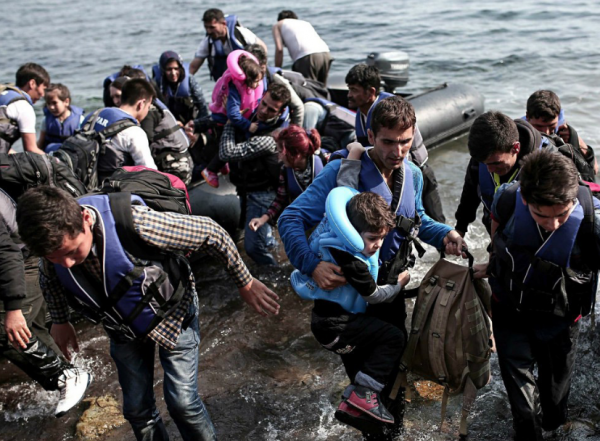
@MonicaMahany
Armed conflict in the Middle East have caused what the United Nations High Commissioner for Refugees (UNHCR) has called the worst migrant crisis since the Second World War.
With the crisis deepening even further, ethical concerns have been raised regarding the treatmentof refugees and their inclusion as members of the communities they become a part of.
Professor of Philosophy at the University of Leipzig in Germany George Meggle and Assistant Professor of Philosophy Alessandro Topa discussed this issue in ‘The Ethics of Refugee Policy: Famine, Wars and Migration A Workshop in Practical Ethics’ on November 2.
Meggle’s workshop examined one of America’s foremost thinkers in political theory and moral philosophy Michael Walzer’s theories about group membership.
“What is shelter [for the refugees]? Is this name appropriate? Is it a fair solution?” Meggle asked.
He explained that personal identity, gender, race, and nationality are referred to as morally irrelevant to the rights of every individual.
According to the workshop, distributive justice is achieved when the strict political dominance in every community is reduced so that power, wealth, physical and food security are not concentrated in one group.
However, these matters are only complicated further when refugees find themselves faced with restrictions imposed by the host country’s legal admission policies.
“We can’t enforce a population to apply morality in any case, it’s up to them,” said Meggle.
The perception of refugees as the ‘other’ begins the moment they enter a certain country. Immediately, they are treated as members not belonging to the population.
“I really like that the professor got into levels of the argumentation like the ethical dimensions of the refugee crisis. We usually don’t tackle that because usually we just talk about the status quo,” Elizabeth Gniosdorch, a senior political science exchange student, told The Caravan.
“But we don’t question the status quo, we don’t ask like why we think in terms of nation-states; how nation-states are constructed,” Gniosdorch added.
When it comes to assisting refugees, a country’s aid is used to signify a voluntary exchange of resources and services in exchange for some other benefit.
But assisting refugees can also come through two other approaches: collective work done by many individuals or individual work.
Aid usually comes from the country as a means of collective members, instead of individuals within the country, when it is urgently needed for instance when the refugee is injured, or when the risks and costs of giving help are relatively low.
However, in the case of individual work for assisting refugees, there is no widely accepted applied standard for communities worldwide.
Every community has its own way when dealing with refugees.
And how does our own community do so?
“In a month or so, there will be a contract between the European countries and Egypt, which replicates the same contract we have with Turkey,” Meggle said.
Egypt has historically hosted refugees, starting with the onset of the Arab-Israeli conflict in the mid 20th century.
However, with the armed conflicts in the Arab World exacerbating further it is yet to be seen how the country will handle the pressures in light of the current social and economic situation.
